News
Keep posted on what our department and its members are accomplishing on a daily basis.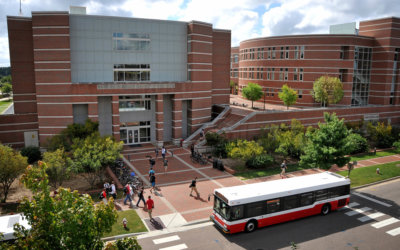
Recipients Announced for 2017 Sensus Reach Scholarship
Posted on August 22, 2017 | Filed Under: Awards and Campus Life and News
North Carolina State University today announced that Ashish Amin of Cary, NC and Vedashrey Makthal, of Morrisville, NC are recipients of the 2017 Sensus Reach℠ Scholarship. Amin, a senior, and Makthal, a junior, in the NC State College of E …
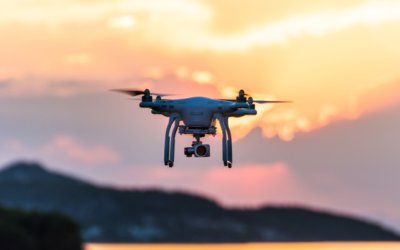
NASA Grant Funds Research into Tracking UAVs
Posted on July 24, 2017 | Filed Under: News and Research
Researchers at NC State ECE are launching a project aimed at researching and developing high-performance communications, networking and air traffic management (ATM) systems, including navigation and surveillance for both manned aircraft and …
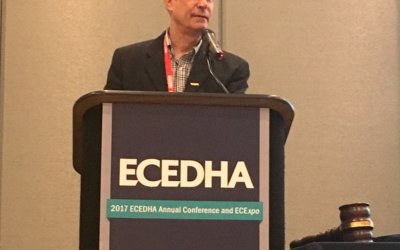
Stancil Named President of ECEDHA
Posted on July 17, 2017 | Filed Under: Faculty and News
Dr. Daniel D. Stancil, Alcoa Distinguished Professor and Department Head of Electrical and Computer Engineering at North Carolina State University has been named president of the Electrical and Computer Engineering Department Heads Associat …
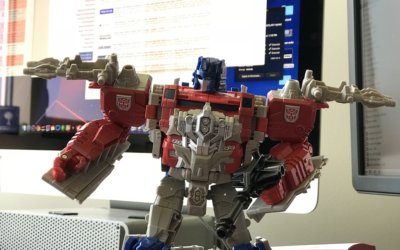
From Transformers to Autonomous Systems
Posted on July 11, 2017 | Filed Under: Faculty and News and Research
This is a guest post by Edgar Lobaton – Autonomous systems are becoming a reality in our everyday lives. A few examples that most of us have seen in the news include autonomous vehicles such as the Google Car, and autonomous stores such as …
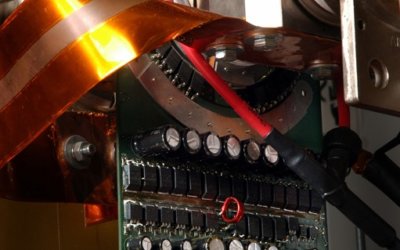
Study Finds ‘Smart’ Transformers Could Make Reliable Smart Grid a Reality
Posted on July 11, 2017 | Filed Under: News and Power and Research
A new study using complex computational models finds that smart solid-state transformers (SSTs) could be used to make a stable, reliable “smart grid” – allowing the power distribution system to route renewable energy from homes and business …
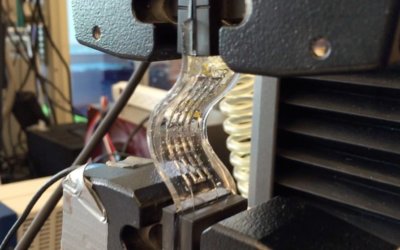
New Design Improves Performance of Flexible Wearable Electronics
Posted on June 26, 2017 | Filed Under: News and Research
In a proof-of-concept study, engineers at NC State University’s Department of Electrical and Computer Engineering have designed a flexible thermoelectric energy harvester that has the potential to rival the effectiveness of existing power w …
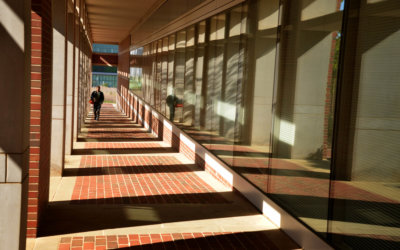
ECE Welcomes New Faculty
Posted on June 23, 2017 | Filed Under: Faculty and News
NC State ECE is proud announce the addition of three new assistant professors to the distinguished faculty. A variety of scholars from across the country will be joining the Wolfpack to lend their experience and expertise to our students an …
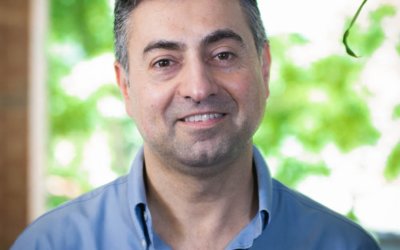
Victor Veliadis Becomes IEEE EDS Distinguished Lecturer
Posted on June 21, 2017 | Filed Under: Faculty and News
Victor Veliadis, the Deputy Executive Director and CTO of the PowerAmerica Institute, based in the Department of Electrical and Computer Engineering at NC State have been honored as a Distinguished Lecturer for the IEEE Electron Devices Soc …
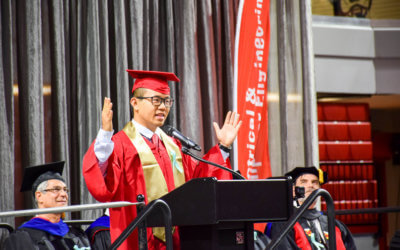
Over 450 ECE Graduates Honored at Spring Graduation Ceremony
Posted on June 1, 2017 | Filed Under: Events
More than 450 B.S., M.S., and Ph.D. recipients celebrated their graduation on May 12 at Reynolds Coliseum, joined there by more than 2,500 friends, relatives, and guests, and watched on live stream by over an additional 2,000 supporters.
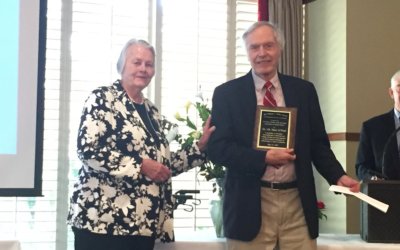
Ben O’Neal Receives Friday Award
Posted on May 30, 2017 | Filed Under: Awards and Faculty and News
Ben O’Neal, Professor Emeritus in the Department of Electrical and Computer Engineering was honored at the Association of Retired Faculty luncheon in May 2017 with the Friday Award, recognizing his continuing teaching excellence in retireme …

CBS 17: NC State receives funding for semiconductor electronics research
RALEIGH, N.C. (WNCN) — NC State University is getting new funding from the White House and Department of Defense to further semiconductor electronics research.
Thursday the White House Science and Technology Director, Department of Defense and others gathered at NC State’s Alumni Center to announce $19 million in funding four additional projects for the Commercial Leap Ahead for Wide Bandgap Semiconductors (CLAWS) Microelectronics Hub.
The projects were selected from more than 100 proposals and aim to improve the performance of transistors and switches used in important civilian and military technologies, as well as to increase U.S. economic competitiveness and national security with translational pathways to commercialization.
The hub is one of eight established by the Biden Administration’s Chips and Science Act.
“Wide bandgap semiconductors have been invented here in North Carolina. You see that in companies like Wolfspeed, Kyma Technologies, Adroit Materials so it’s got a great base and great start to do interesting technologies,” said John Muth, Professor of Electrical and Computer Engineering at NC State.
The goal of the Chips and Science Act is to increase production and manufacturing of advanced semiconductors here in the United States. Currently Taiwan tops the list as the largest producer of advanced semiconductors.
“Right here at NC State, with this work that they’re doing, a particular class of wide band gap semi-conductors, these are the devices that we need for advanced radar and power electronics. Our military needs them but we need them for our clean energy future as well and this area’s got just such a tremendous track record in this technology…this is about the next generation,” said Arati Prabhakar, White House Science and Technology Director.
The White House says the U.S. produces only about 10% of the global supply of semi-conductor chips. They hope with programs like these they can increase production over the next decade. You can learn more about the “Leap Ahead” projects here.
Posted on September 19, 2024

ABC 11: CLAWS Hub at NC State receives $19 million from CHIPS and Science Act
RALEIGH, N.C. (WTVD) — Federal officials gathered Thursday at the Park Alumni Center on NC State University’s campus to announce $19 million in federal funding for the CLAWS Hub toward work on semiconductors.
CLAWS, an acronym for Commercial Leap Ahead for Wide Bandgap Semiconductors, is based at NC State and is comprised of NC State, North Carolina A&T State University and six private companies.
“(NC State has) for a long time been a particular leader in these specialty semiconductors that are so important in our military for radar and for power electronics,” said Dr. Arati Prabhakar, President Joe Biden’s Chief Advisor for Science and Technology.
Semiconductors are used in nearly all forms of modern technology, including in cell phones, refrigerators, data centers and military capabilities.
“If you look at emerging technologies like artificial intelligence that are going to require power, you need to be able to get that power there efficiently. If you look at technologies like quantum, you need to have new lasers, new photonic integrated circuits that will be able to make the next generation of quantum computers,” said Dr. John Muth, Director of the CLAWS Hub.
Taiwan is responsible for the overwhelming majority of chip production globally, a point that has concerned US officials from a national security perspective.
“If you look at weapons systems or if you look at airplanes, they need to be able to fly faster. They need to be able to be lighter. They need to be able to have radars that can sense the enemy further away,” said Muth.
“Increased funding has been a game-changer,” Prabhakar said.
“At the time the CHIPS and Science Act passed, the United States had 0% of the global capacity to manufacture advanced logic. And a decade from then, in 2032, because of the CHIPS and Science Act and this huge private capital that it’s bringing with it, we’re going to go from 0% to 28%,” said Prabhakar.
Muth said all four projects will take multiple years, with the total funding set to exceed the $19 million announced Thursday,
“I want to take my experience and academia and from the support that we’re given and push it in the industry. And I hope it gives me a great leap forward,” said Jacob Davis, an NC State Master’s student.
Dan Rogers, an NC State PhD student, added, “I think it’s a really great opportunity to kind of leverage for employers and for future employment opportunities to be able to say that you worked on some of these different innovations.”
Posted on September 19, 2024

Christina Koch is headed to the moon, exactly like she dreamed she would
In 2025, she will be one of four astronauts who will head to the moon as a part of Artemis II. The North Carolina State University graduate stopped by the WUNC studio during a recent visit back to the Tar Heel State.
Posted on May 9, 2024

Injectable Microchip Tracks Animal Health
Around the world, many pets and working animals are microchipped. It’s a simple process: A tiny transponder with an identification number is enclosed in a rice-grain-sized cylinder and injected under the skin, so that if an animal is lost it can be identified. This new devices does more, including tracking and reporting heart rate, breathing, movement, and temperature sensing in a 4-mm-wide package.
Posted on March 12, 2024

NC State innovation on display at CES 2024 in Las Vegas
Posted on January 11, 2024

Stress Monitors for Plants Can Spot Dehydration
In a forthcoming paper to be published in IEEE Transactions on AgriFood Electronics(TAFE), James Reynolds, a postdoctoral research scholar at NC State’s iBionicS Lab and first author of the paper, and fellow researchers at North Carolina State University explored how plant tissue’s impeding of electrical current can be monitored to identify plants under stress with relative immediacy—less than an hour, in some cases.
Posted on December 11, 2023
